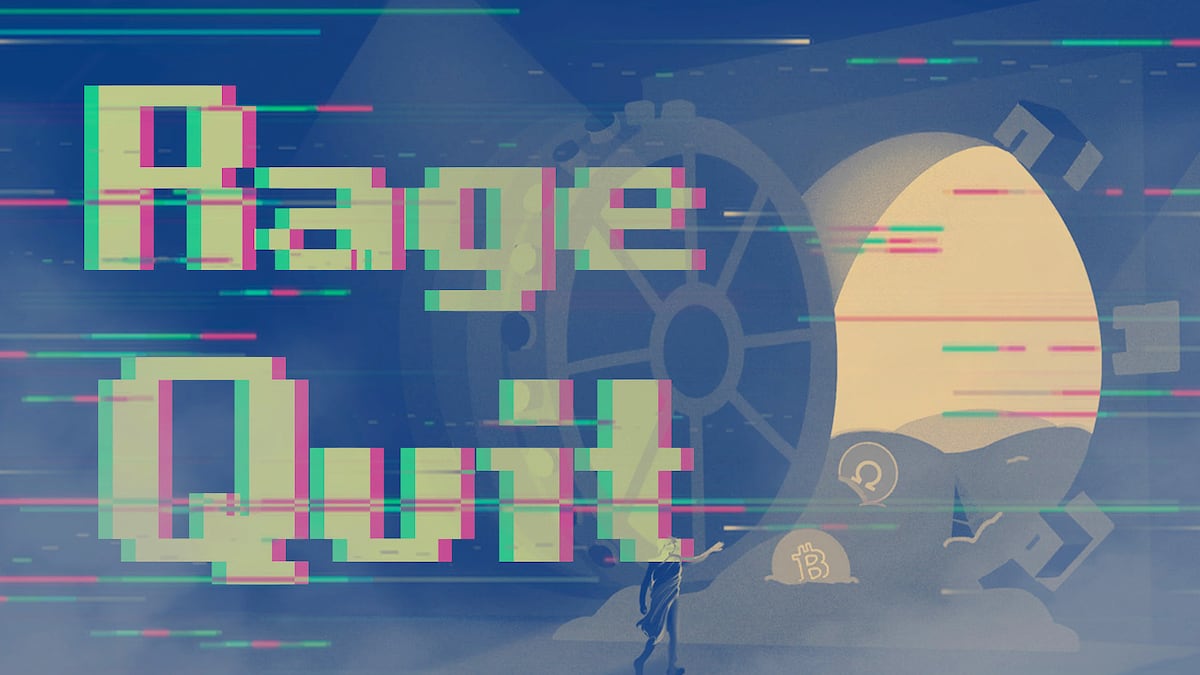- Two of Vesta Finance’s co-founders are pushing to rage quit the project.
- They have asked for a settlement worth $1.68 million to be shared between them.
- The remaining founder opposes the rage quit and wants to carry on with the project.
Vesta Finance, a DeFi lending protocol, is embroiled in a leadership crisis as two out of the project’s three co-founders push for a settlement so they can leave with a $1.7 million payday divided between them, according to two proposals published on the project’s governance forum on September 9.
The third co-founder, Vesta Finance CEO Mikey Milken, has objected to his partners’ proposed rage quit and is pursuing an alternative settlement that he says will not jeopardise plans for an upgrade to the protocol, according to a counterproposal he published on the same forum.
Conflict divides community
Rage quitting in crypto refers to the practice of liquidating a project’s treasury — wholly or partially — and distributing the funds among investors.
Vesta Finance is a DeFi lending protocol on the Arbitrum blockchain worth $11.5 million, according to DefiLlama figures. The project’s treasury holds $10 million in crypto assets including USDC stablecoin.
While the conflict has divided the Vesta community, some opportunistic investors are piling in to VSTA, the project’s native token, to obtain a share of the treasury funds, on-chain data shows.
VSTA has jumped more than 150% since the drama began, according to data from CoinGecko. (Its market cap is $6.5 million).
NOW READ: Concave Finance $2m payout to investors marred by ‘horrible’ and ‘stupid’ smart contract flaw
These investors are using the playbook of DAO activist groups such as the Risk Free Value Raiders. In recent months, the raiders have been targeting DeFi projects struggling to overcome governance crises and weather the bear market.
‘By dissociating and compensating the current parties, we remove the friction brought by the conflicting opinions and mindsets.’
— Co-founders James 'Atum' Peterson and Midnight
This influx of capital has, however, caused concerns among some longstanding Vesta investors that the troubled project is being overrun by DAO raiders, according to their comments on Vesta’s Discord server.
They say these new investors may dilute their share of the possible settlement if a rage quit takes place.
As a result, there are calls from them on the Vesta Discord for any rage quit settlement to exclude these new investors. Others in the community say such a move would be unfair.
The drama playing out inside Vesta’s community is the latest in a series of rage quits in the DeFi market. They underscore how the punishing bear market, coupled with angst inside DAOs, is fanning fears valuations may not rebound.
Proposal and counterproposal
At Vesta, a two-year-old Canadian venture, the controversy kicked off on September 9 when co-founders James “Atum” Peterson and another known as Midnight published governance proposals stating their intention to exit the project.
In the proposal, they expressed frustration at the project’s lack of progress and demanded $1.68 million in compensation.
NOW READ: Alameda-backed Parrot Protocol team to rage quit after vote
They proposed the settlement be funded by either dissolution of the project or a rage quit
“By dissociating and compensating the current parties, we remove the friction brought by the conflicting opinions and mindsets and also make the removed founders whole for their significant contribution,” they said.
“Given the management at Vesta hasn’t found any product-market fit after all this time, and still doing ‘research’ doesn’t show a strong long-term vision for the DAO,” they said.
Future progress
Milken opposed the proposal and labelled it as “hostile” and countered with a proposal of his own. Published on September 9, Milken’s proposal seeks to buy out Atum and Midnight without materially impacting Vesta Finance’s future.
“Any proposal to move forward would need to take into account all the interests of stakeholders who remain interested in the future progress of the project while allowing uninterested parties to depart,” Milken said.
Milken also brought up regulatory concerns associated with rage quitting. He stated that VSTA is a utility token and does not confer any rights on holders to draw claims against the project’s treasury.
NOW READ: Investors rip Hector Network team after it squanders $100m treasury and ‘rage quits’ DeFi project
The Vesta CEO said using VSTA as a treasury-funded buyback tool would open all Vesta stakeholders to legal liability because the project could be designated a security by regulators.
“With the numerous legal red flags, we cannot in good faith support the rage quit proposal and the dissolve proposal,” Milken said. “A new proposal to address ‘allowing uninterested parties to depart’ will come soon.”
Total rage quit
Not everyone shares this view. Several investors, including early backers of the project, have called for a total rage quit.
“[A] rage quit is the best outcome for investors at this point,” Ogle, a major Vesta investor told DL News. “This is all hard to recover from.”
Several DAO members are pushing for a rage quit with one member telling DL News that it is the “optimal solution” for all parties involved.
‘The transfer of value from a prior holder to a new, more recent, and more governance-engaged buyer, is not mercenary by any metric.’
— Vesta DAO member
Those in favour of rage quitting said it would compensate stakeholders who wish to exit while allowing Milken to continue developing the project if he so wishes.
These investors also told DL News that existing precedence of rage quits as seen in other DeFi projects lends credence to their position on the matter and that a rage quit for Vesta would not be “groundbreaking” by any means.
‘One token, one vote’
Even so, debate continues among Vesta DAO members about whether the raiders are a good thing for DeFi, or a bad one. Those in the latter camp say RFV Raiders are using mercenary capital to position themselves for a share of the settlement if and when a rage quit happens.
They say it is unfair that RFV Raiders can pile into VSTA and interfere with the rights of longtime investors and have called for some form of action to block them, perhaps through a retroactive snapshot that excludes their wallet addresses from the list of eligible claimants.
NOW READ: DAO raiders accuse Hector Network of ‘slow-rugging’ investors as treasury dwindles
Others in the DAO counter that those pushing for excluding RFV Raiders fails to reckon with how the markets work.
“The transfer of value from a prior holder to a new, more recent, and more governance-engaged buyer, is not mercenary by any metric,” one DAO member told DL News.
Some members who are sympathetic to RFV Raiders say a rage quit is only fair if it adheres to the principle of “one token, one vote.”
This principle dictates the proceeds from a rage quit treasury liquidation should be shared among all tokenholders on a pro-rata basis without any attempts to exclude particular claimants.
Price increase
Ogle, for one, welcomes the new investors. Ogle has been providing about 6% of the liquidity that allows VSTA tokens to trade against Ether for the last 18 months.
“I’m not concerned about that at all, the RFV capital,” Ogle said. “It’s enabled the price to increase by 2.5x so far, and many long-term holders can now get out of their position with much less loss.”
Update: This article has been updated to correct how the influx of new investors may impact a possible rage quit.
Osato Avan-Nomayo is our Nigeria-based DeFi correspondent. He covers DeFi and tech. To share tips or information about stories, please contact him at osato@dlnews.com.



